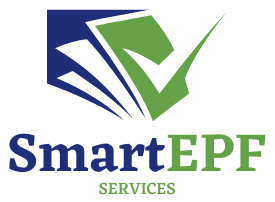Who Is Responsible to Deduct TDS
TDS, or Assessment Deducted at Source, assumes a significant part in checking tax avoidance. It includes deducting a specific measure of duty from significant installments like lease, commission, proficient expenses, compensation, and that’s only the tip of the iceberg. This allowance happens once the cash is credited to the payee or paid straightforwardly.
The deducted sum is then stored with the Personal Duty Office, guaranteeing a deliberate way to deal with charge consistence. In this blog, we will investigate the particulars of TDS under Segment 194J, investigating who holds the obligation and understanding the complexities of this essential expense arrangement.
The Meaning of TDS in Monetary Scene
Charge Deducted at Source (TDS) fills in as an essential component in the monetary structure, holding massive significance for the two citizens and the public authority. The essential jobs and significance of TDS can be framed as follows:
Guarantees Opportune Expense Assortment:
TDS works with the opportune assortment of charges by deducting a piece at the actual source, forestalling expected deferrals or avoidance.
Going about as a consistent wellspring of income, TDS contributes essentially to the public authority’s monetary steadiness by gathering charges over time.
Diminishes Tax Avoidance:
TDS goes about as an obstacle to tax avoidance, advancing straightforwardness and responsibility in monetary exchanges.
Smoothes out Expense Consistence:
By deducting charges at the source, TDS improves on the duty consistence process, making it more effective for the two citizens and specialists.
Advances Monetary Discipline:
The programmed derivation of duties empowers monetary discipline among people and organizations, guaranteeing customary commitments to the public authority exchequer.
Supports Financial plan Arranging:
For citizens, TDS offers an organized way to deal with planning, as it represents charge liabilities in a staged way consistently.
Facilitates Weight on Citizens:
Rather than a singular amount installment toward the finish of the monetary year, TDS disperses the taxation rate, making it more reasonable for citizens.
What is Segment 194J And Who is At risk to Deduct TDS Under Area 194J?
The principles and guidelines of segment 194J of the Personal expense Act were presented in 1961. An individual’s expense is deducted from the source in view of various rates. Various kinds of installments go under area 194J like TDS on proficient expenses, TDS for specialized help charges, Non-contend charges according to segment 24 (VA), and Eminence charge. These are individuals obligated to deduct TDS under segment 194J. Allow us to learn:
TDS on Proficient Expenses
The first and the main kind of installment that goes under Area 194J is the TDS on proficient charges. The expert expenses are inferred on administrations of a singular like clinical, designing, lawful, or engineering calling.
TDS on Specialized Administrations
The second kind of installment that goes under 194J is those that offer specialized types of assistance. Specialized administrations incorporate administrations gave by people to consultancy and specialized and administrative administrations. In any case, administrations like gathering, mining, development, and so on, are not viewed as specialized administrations.
TDS on Non-Contend Expenses
A non-contend expense is how much cash got either in real money or as a trade-off for an understanding that limits the individual from sharing the patent, permit, establishment, brand name, business or business freedoms, and so on, that are probably going to be utilized in assembling, handling, and so on.
The Rate at Which the TDS is deducted
There is a decent rate for Deducting charge under segment 194J of the Personal Duty Act. 10% is the pace of TDS in light of which the TDS is deducted for Proficient, Specialized, Non-contend, and Eminence charges in a financial year. Notwithstanding, recollect the sum from which the assessment is deducted ought to be over 30,000 INR.
TDS on Proficient Expenses are to be deducted by whom?
Presently, the majority of us question who deducts TDS from proficient expenses? The organization or association for which the worker works is the expense deductor of the organization. To deduct TDS prior to making the installment is the obligation of the deductor, and they ought to likewise guarantee that the sum deducted is saved to the Public authority of India.
When is no TDS on proficient expenses to be deducted?
There are numerous expert regions where TDS isn’t deducted, as lawful and proficient expenses related with fuse, acquisitions, removals, and annihilation of resources. Further, the TDS of expert expenses isn’t deducted assuming that the singular’s pay is under 30,000 INR. Hence, these are when TDS isn’t deducted.
Benefits of TDS allowance
The TDS allowance enjoys various benefits, and some of them are as per the following:
It forestalls the deductor from defaulting on covering charges.
By and large, when the organization or association is enormous, the obligations of its head consequently increment and can in some cases get muddled. Further, in such cases, they will generally default on paying assessments to the Public authority utilized by them for the government assistance and advancement of the country.
TDS guarantees the dependability of Government Incomes.
Ordinary Expense derivation in an organization works on the strength of Government income as we probably are aware that a large portion of the govt income relies on the charges paid by the residents of India. Further, security in charge assortment relies upon the standard duty allowances of different organizations or associations.
TDS helps in augmenting the extent of base expense assortment.
The base duty is the aggregate sum of resources or pay that the separate specialists can burden, for example, in India, the Public authority of India. Further, computing the duty liabilities of an individual or organization is utilized. Normal assessment allowances assist with extending the extent of the base expense assortment.
Both the deductor and the deductee are benefited.
The normal assessment allowances help both the deductor and the deductee similarly benefit. Since the standard TDS allowances will assist with diminishing the duty liabilities on both the organization or association and the representative. Consequently, the TDS allowance is reasonable for both the deductor and the deductee.

